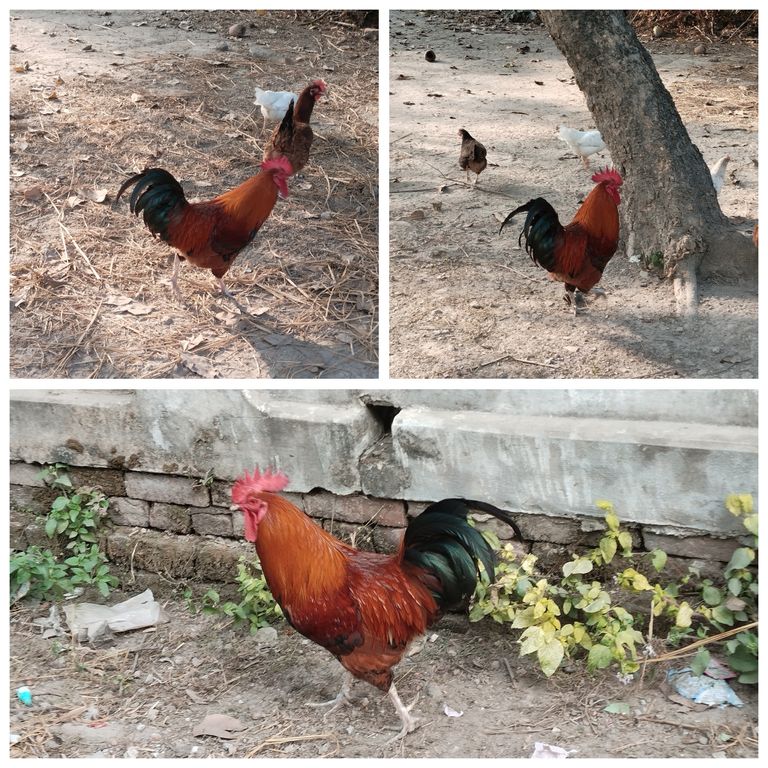
Raising Desi Chickens A Guide to Traditional Poultry Farming.
Desi chickens, also known as native or indigenous chickens, have been a part of traditional farming systems for generations. These chickens are well-adapted to local conditions, require minimal investment, and provide high-quality meat and eggs. In this blog, we will cover the essential aspects of raising Desi chickens, including their benefits, setup, care, and marketing strategies.
Why Raise Desi Chickens?
Raising Desi chickens has several advantages:
- Low Maintenance: They can thrive on natural foraging and require less feed compared to commercial breeds.
- Resilient: Desi chickens are hardy and resistant to many diseases, making them suitable for small-scale farmers.
- High Demand: The meat and eggs of Desi chickens are considered more nutritious and tastier, which attracts a premium price in the market.
- Eco-Friendly: They integrate well with traditional farming systems and help maintain ecological balance.
Setting Up a Desi Chicken Farm
- Selecting a Suitable Location
Choose a location with good ventilation, natural light, and adequate protection from predators. The area should be dry and free from waterlogging to prevent diseases.
- Housing Requirements
A basic coop is sufficient for Desi chickens. Ensure:
Space: Provide at least 1-1.5 square feet per bird inside the coop.
Perches: Add perches for roosting at night.
Nesting Boxes: Provide clean, dry nesting boxes for egg-laying.
Protection: Use mesh or netting to prevent predators like dogs, cats, or snakes from entering.
- Fencing and Free-Range Area
Allow free-range access during the day. Fence the area to keep the chickens safe while enabling them to forage for insects, grains, and greens.
Feeding and Nutrition
Desi chickens primarily thrive on natural foraging, but supplemental feeding enhances their productivity.
- Foraging Diet: Grains, seeds, insects, kitchen scraps, and greens.
- Supplementary Feed: Add crushed grains like wheat, maize, or rice bran to ensure proper nutrition.
- Clean Water: Always provide fresh, clean drinking water.
Tip: Occasionally mix herbs like neem leaves or turmeric in their diet to boost immunity.
Health and Disease Management
Desi chickens are resistant to many diseases, but basic care is essential to ensure a healthy flock.
- Vaccination: Administer vaccines for common diseases like Newcastle disease and fowlpox.
- Parasite Control: Check for mites, ticks, or lice and treat the coop with herbal sprays or approved pesticides.
- Regular Monitoring: Observe the flock for signs of illness such as lethargy, loss of appetite, or unusual droppings.
Common Issues:
Respiratory infections during winter.
Parasites due to unhygienic conditions.
Overcrowding can lead to stress and reduced productivity.
Reproduction and Brooding
Desi chickens are natural breeders. Hens often go broody, making them excellent mothers.
- Breeding Ratio: Maintain one rooster for every 8-10 hens for effective breeding.
- Egg Collection: Collect eggs daily to prevent damage or contamination.
- Brooding: Allow broody hens to sit on eggs for natural hatching or use an incubator for larger-scale operations.
Marketing Desi Chicken and Eggs
The demand for Desi chicken products is steadily rising due to their perceived health benefits.
- Direct Sales: Sell directly to consumers in local markets or from your farm.
- Wholesale: Supply to restaurants and specialty stores that emphasize organic or traditional food.
- Value Addition: Offer processed products like cleaned chicken or packaged eggs for convenience.
- Online Platforms: Use social media or e-commerce platforms to reach a broader audience.
Tips for Success
- Start small and gradually expand your flock as you gain experience.
- Maintain cleanliness in the coop and surrounding areas.
- Build a network of buyers, including local households and small businesses.
- Document your expenses and profits to understand your business performance.
Conclusion
Raising Desi chickens is not just a profitable venture but also a sustainable practice that aligns with traditional farming methods. With minimal investment, you can enjoy a steady source of income while contributing to food security and preserving local breeds.
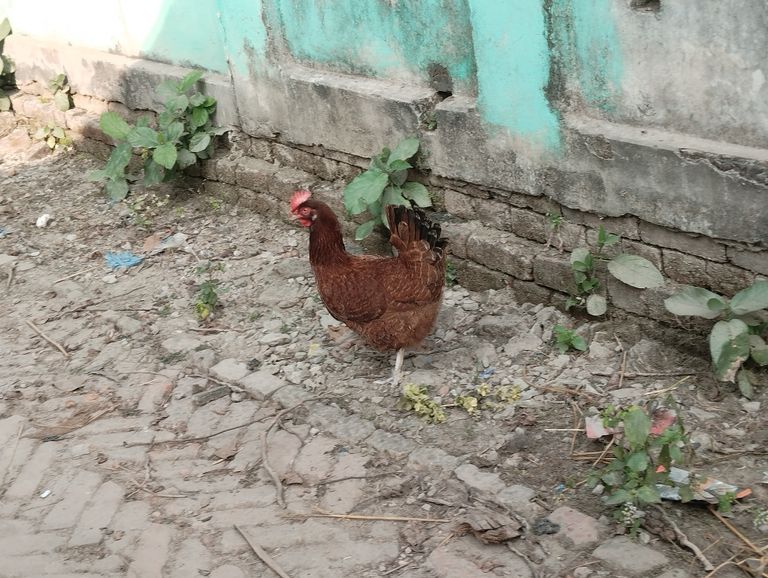
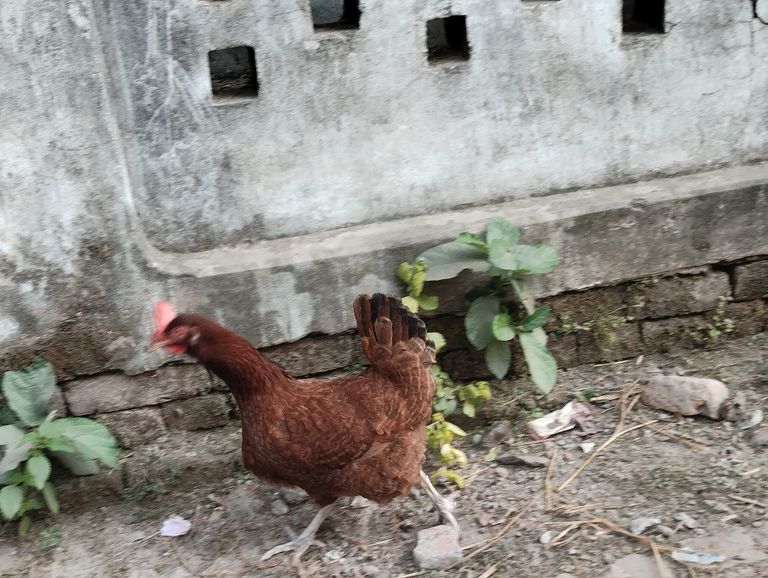
Benefits of Eating Boiled Eggs of Desi Chicken
Desi chicken eggs, also known as country or native chicken eggs, are often considered more nutritious and healthier compared to commercially produced eggs. These eggs come from free-range chickens that are fed natural food, without artificial additives or antibiotics. Let’s explore the various health benefits of consuming boiled eggs from desi chickens.
- Packed with Essential Nutrients
Desi chicken eggs are a powerhouse of nutrients. They contain:
High-quality protein: Essential for muscle building and repair.
Vitamins: Rich in Vitamin A, D, B12, and riboflavin, which support immunity, bone health, and energy production.
Minerals: Include iron, phosphorus, and selenium, crucial for oxygen transport, bone strength, and antioxidant defense.
Compared to commercially produced eggs, desi chicken eggs often have a better nutrient profile because the hens are raised naturally.
- Boosts Immunity
Desi eggs are a great source of antioxidants like selenium and Vitamin E. These nutrients play a significant role in strengthening the immune system, helping the body fight off infections.
- Improves Heart Health
Boiled desi chicken eggs are low in cholesterol compared to industrial eggs, reducing the risk of heart-related diseases. The omega-3 fatty acids in these eggs also contribute to lowering blood pressure and maintaining heart health.
- Supports Brain Development
Desi chicken eggs contain choline, a vital nutrient for brain development and functioning. Regular consumption can enhance memory and cognitive abilities, making them an excellent choice for children and adults alike.
- Promotes Healthy Eyes
The high levels of lutein and zeaxanthin, two powerful antioxidants found in desi eggs, help protect the eyes from harmful blue light and reduce the risk of macular degeneration and cataracts.
- Aids in Weight Management
Boiled eggs are a low-calorie, high-protein food that keeps you full for longer. Including desi chicken eggs in your diet can help control hunger, making it easier to manage your weight.
- Enhances Bone Strength
The Vitamin D content in desi chicken eggs is higher due to the natural lifestyle of the hens. This vitamin is essential for calcium absorption, which helps maintain strong bones and teeth.
- Better for Skin and Hair
Desi chicken eggs are rich in biotin, protein, and other essential nutrients that promote healthy skin and shiny hair. They help in repairing skin tissues and strengthening hair follicles.
- Suitable for All Ages
From children to the elderly, boiled desi chicken eggs are a nutritious addition to the diet. They provide energy, enhance growth in kids, and support overall health in adults and seniors.
- Free from Harmful Chemicals
Unlike commercially produced eggs, desi chicken eggs are usually free from hormones, antibiotics, and other harmful chemicals, making them a safer and healthier option.
How to Incorporate Boiled Desi Eggs into Your Diet
Eat them as a simple snack or breakfast.
Add them to salads, sandwiches, or rice dishes.
Pair with vegetables for a balanced meal.
Boiled desi chicken eggs are a natural source of essential nutrients that benefit overall health. They provide a better alternative to regular eggs, especially for those looking for chemical-free, nutrient-dense food options. Including them in your diet can lead to numerous health advantages, making them a must-have for a healthy lifestyle.
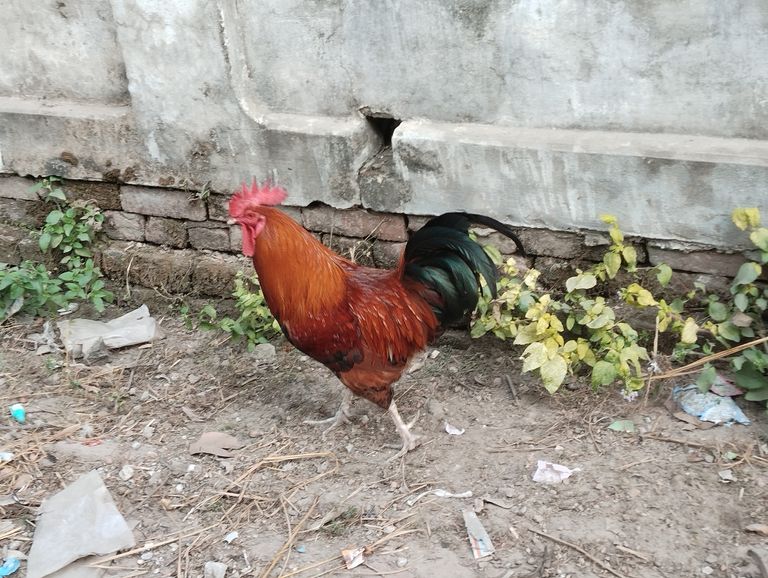
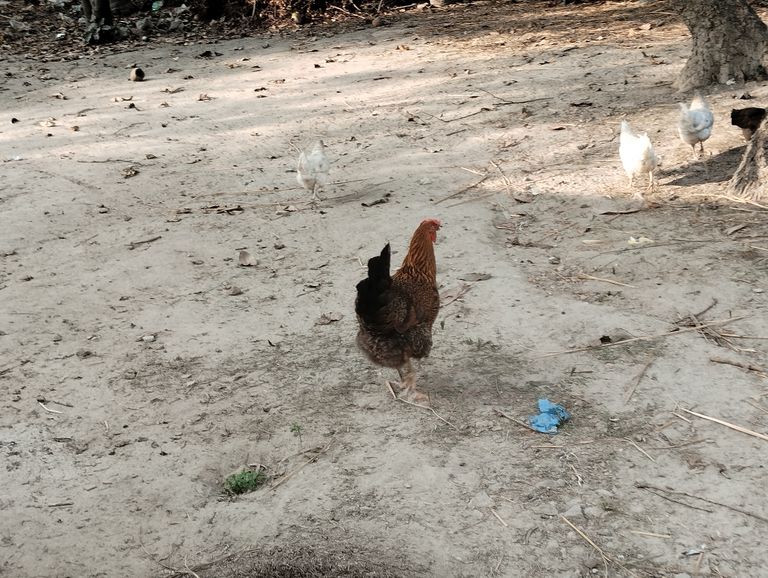
Deshi Chicken Breeds: An Overview
In Bangladesh and South Asia, deshi (local) chicken breeds hold a special place in rural households and small-scale farming. These indigenous breeds are valued for their adaptability to local conditions, excellent meat and egg quality, and low maintenance requirements. This blog explores the various aspects of deshi chicken breeds, their characteristics, and their importance in sustainable farming practices.
Key Characteristics of Deshi Chickens
- Adaptability to Local Conditions:
Deshi chickens are well-suited to the tropical climate of South Asia. They can thrive in harsh weather, resist local diseases, and adapt to low-input farming systems.
- Hardiness and Disease Resistance:
Unlike commercial breeds, deshi chickens have strong immunity, reducing the need for antibiotics or frequent veterinary care.
- Small Size and Slow Growth:
These breeds are generally smaller and grow more slowly compared to commercial broilers. However, this slow growth contributes to better meat quality and flavor.
- Natural Foraging Abilities:
Deshi chickens are excellent foragers, often finding a significant portion of their diet from the environment, such as insects, seeds, and plants.
- Egg Quality and Productivity:
While they lay fewer eggs compared to hybrid layers, their eggs are nutrient-dense, with a rich flavor and natural color.
Popular Deshi Chicken Breeds in Bangladesh
- Hilly Chicken:
Origin: Indigenous to hilly areas of Bangladesh.
Features: Small body size, strong legs, and colorful feathers.
Specialty: High disease resistance and flavorful meat.
- Naked Neck (Deshi Kamari):
Appearance: Partially featherless neck, allowing better heat tolerance.
Benefits: Popular for its unique look and tasty meat.
- Aseel:
Origin: Originally from India but widely found in Bangladesh.
Features: Muscular body, strong legs, and aggressive temperament.
Uses: Valued for cockfighting and premium-quality meat.
- Sonali:
Crossbreed: A mix of Rhode Island Red and Fayoumi, but often considered a semi-deshi variety.
Benefits: Higher egg production than pure deshi breeds and adaptability to free-range systems.
- Local Mixed Breeds:
Description: A mix of indigenous breeds with varied appearances.
Advantages: Adaptability, affordability, and excellent for small-scale farming.
Economic Importance of Deshi Chickens
- Source of Income:
Small-scale farmers and rural households rely on deshi chickens as a steady source of income through the sale of eggs and meat.
- Low Input Costs:
Since these breeds forage naturally and require minimal care, they are cost-effective for farmers with limited resources.
- Sustainable Farming:
Deshi chickens contribute to sustainable agriculture by reducing reliance on commercial feed and synthetic medicines.
- Cultural Significance:
In many South Asian cultures, deshi chicken meat and eggs are considered healthier and tastier, often fetching premium prices in local markets.
Challenges in Rearing Deshi Chickens
- Low Productivity:
Compared to commercial breeds, deshi chickens produce fewer eggs and grow more slowly, which can be a disadvantage for commercial-scale operations.
- Predation and Loss:
Free-range systems expose deshi chickens to predators, leading to higher mortality rates.
- Disease Outbreaks:
Although hardy, deshi chickens are not entirely immune to diseases like Newcastle or fowl cholera, requiring occasional vaccination.
- Lack of Organized Breeding Programs:
There are limited initiatives to improve the genetic potential of deshi chickens, which could enhance productivity without compromising their natural traits.
Best Practices for Rearing Deshi Chickens
- Housing:
Provide simple yet sturdy shelters to protect against predators and extreme weather.
- Feeding:
Supplement natural foraging with household scraps and locally available grains to ensure balanced nutrition.
- Health Management:
Conduct regular health check-ups, administer vaccines, and maintain hygiene in the living environment.
- Selective Breeding:
Choose healthy and productive birds for breeding to enhance the overall quality of the flock.
- Market Strategies:
Highlight the organic and natural qualities of deshi chicken products to attract health-conscious consumers.
Deshi chicken breeds are an integral part of rural life in Bangladesh, offering multiple benefits to farmers and consumers. Their resilience, adaptability, and superior product quality make them a sustainable choice for small-scale poultry farming. While they may not compete with commercial breeds in terms of productivity, their role in supporting local economies and promoting sustainable practices is undeniable.
Investing in improved management, selective breeding, and market promotion can further enhance the potential of deshi chickens, ensuring their continued relevance in modern farming.
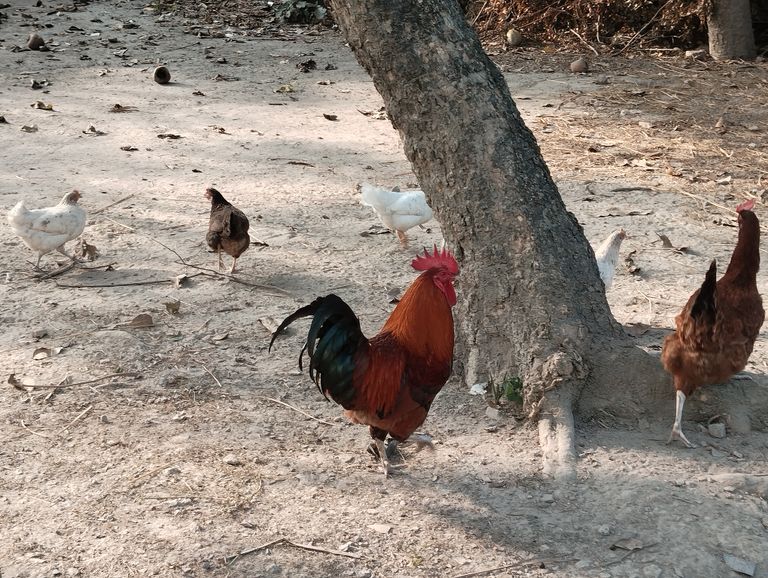
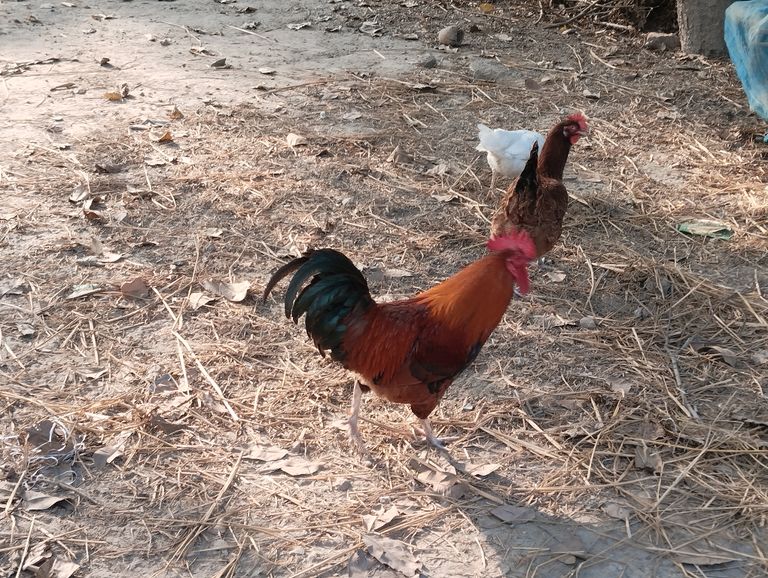
Deshi Chicken Breeds: An Overview
In Bangladesh and South Asia, deshi (local) chicken breeds hold a special place in rural households and small-scale farming. These indigenous breeds are valued for their adaptability to local conditions, excellent meat and egg quality, and low maintenance requirements. This blog explores the various aspects of deshi chicken breeds, their characteristics, and their importance in sustainable farming practices.
Key Characteristics of Deshi Chickens
- Adaptability to Local Conditions:
Deshi chickens are well-suited to the tropical climate of South Asia. They can thrive in harsh weather, resist local diseases, and adapt to low-input farming systems.
- Hardiness and Disease Resistance:
Unlike commercial breeds, deshi chickens have strong immunity, reducing the need for antibiotics or frequent veterinary care.
- Small Size and Slow Growth:
These breeds are generally smaller and grow more slowly compared to commercial broilers. However, this slow growth contributes to better meat quality and flavor.
- Natural Foraging Abilities:
Deshi chickens are excellent foragers, often finding a significant portion of their diet from the environment, such as insects, seeds, and plants.
- Egg Quality and Productivity:
While they lay fewer eggs compared to hybrid layers, their eggs are nutrient-dense, with a rich flavor and natural color.
Popular Deshi Chicken Breeds in Bangladesh
- Hilly Chicken:
Origin: Indigenous to hilly areas of Bangladesh.
Features: Small body size, strong legs, and colorful feathers.
Specialty: High disease resistance and flavorful meat.
- Naked Neck (Deshi Kamari):
Appearance: Partially featherless neck, allowing better heat tolerance.
Benefits: Popular for its unique look and tasty meat.
- Aseel:
Origin: Originally from India but widely found in Bangladesh.
Features: Muscular body, strong legs, and aggressive temperament.
Uses: Valued for cockfighting and premium-quality meat.
- Sonali:
Crossbreed: A mix of Rhode Island Red and Fayoumi, but often considered a semi-deshi variety.
Benefits: Higher egg production than pure deshi breeds and adaptability to free-range systems.
- Local Mixed Breeds:
Description: A mix of indigenous breeds with varied appearances.
Advantages: Adaptability, affordability, and excellent for small-scale farming.
Economic Importance of Deshi Chickens
- Source of Income:
Small-scale farmers and rural households rely on deshi chickens as a steady source of income through the sale of eggs and meat.
- Low Input Costs:
Since these breeds forage naturally and require minimal care, they are cost-effective for farmers with limited resources.
- Sustainable Farming:
Deshi chickens contribute to sustainable agriculture by reducing reliance on commercial feed and synthetic medicines.
- Cultural Significance:
In many South Asian cultures, deshi chicken meat and eggs are considered healthier and tastier, often fetching premium prices in local markets.
Challenges in Rearing Deshi Chickens
- Low Productivity:
Compared to commercial breeds, deshi chickens produce fewer eggs and grow more slowly, which can be a disadvantage for commercial-scale operations.
- Predation and Loss:
Free-range systems expose deshi chickens to predators, leading to higher mortality rates.
- Disease Outbreaks:
Although hardy, deshi chickens are not entirely immune to diseases like Newcastle or fowl cholera, requiring occasional vaccination.
- Lack of Organized Breeding Programs:
There are limited initiatives to improve the genetic potential of deshi chickens, which could enhance productivity without compromising their natural traits.
Best Practices for Rearing Deshi Chickens
- Housing:
Provide simple yet sturdy shelters to protect against predators and extreme weather.
- Feeding:
Supplement natural foraging with household scraps and locally available grains to ensure balanced nutrition.
- Health Management:
Conduct regular health check-ups, administer vaccines, and maintain hygiene in the living environment.
- Selective Breeding:
Choose healthy and productive birds for breeding to enhance the overall quality of the flock.
- Market Strategies:
Highlight the organic and natural qualities of deshi chicken products to attract health-conscious consumers.
Deshi chicken breeds are an integral part of rural life in Bangladesh, offering multiple benefits to farmers and consumers. Their resilience, adaptability, and superior product quality make them a sustainable choice for small-scale poultry farming. While they may not compete with commercial breeds in terms of productivity, their role in supporting local economies and promoting sustainable practices is undeniable.
Investing in improved management, selective breeding, and market promotion can further enhance the potential of deshi chickens, ensuring their continued relevance in modern farming.